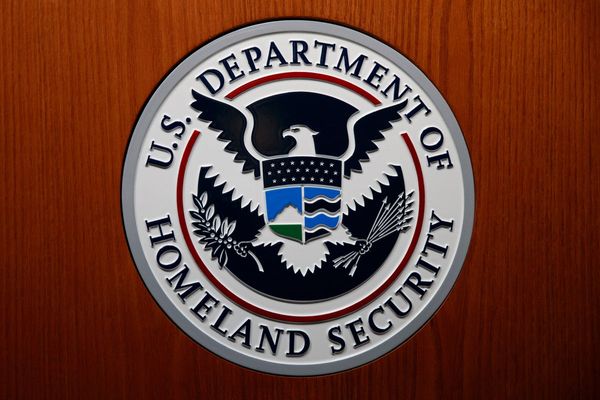
When someone dies, their credit cards don’t just disappear. Many people think the debt vanishes or that family members automatically inherit it. That’s not how it works. What actually happens to your credit cards when you die can surprise you. This topic matters because it affects your loved ones, your estate, and even your credit report after death. If you want to protect your family and avoid confusion, you need to know what really happens to your credit cards when you die.
1. Your Credit Card Debt Doesn’t Die With You
When you die, your credit card debt doesn’t just go away. The responsibility for paying off your credit cards falls to your estate. Your estate is everything you owned at the time of your death—your house, car, bank accounts, and even your personal belongings. Before your heirs get anything, your estate pays off your debts, including your credit cards. If there’s not enough money in your estate, the credit card companies usually have to write off the remaining debt. Your family members don’t have to pay your credit card bills unless they’re joint account holders or co-signers. This is a big relief for many people who worry about leaving debt behind.
2. Joint Account Holders Are Still on the Hook
If you have a joint credit card account with someone, things change. When you die, the joint account holder becomes fully responsible for the entire balance. This is different from being an authorized user, which we’ll cover next. Joint account holders signed up for the card with you, so the credit card company can go after them for payment. If you’re thinking about adding someone as a joint account holder, make sure they understand this risk. It’s not just about convenience—it’s about legal responsibility for the debt.
3. Authorized Users Don’t Owe the Debt
Many people add family members as authorized users on their credit cards. This lets them use the card, but it doesn’t make them responsible for the debt. When you die, authorized users are not legally required to pay off your credit card balance. However, they should stop using the card right away. If they keep using it after your death, they could get into legal trouble. Credit card companies will close the account once they learn about your death, so it’s best to act quickly and avoid confusion.
4. The Executor Handles Your Credit Card Accounts
When you die, someone has to manage your estate. This person is called the executor. One of their jobs is to notify your credit card companies of your death. The executor will collect your credit cards, review your statements, and make sure the companies know you’ve passed away. They’ll also work with the companies to settle any outstanding balances using your estate’s assets. If you don’t have a will, the court will appoint someone to do this job. It’s important to keep your financial records organized so your executor can handle your credit cards smoothly.
5. Creditors Get Paid Before Heirs
Your heirs don’t get their inheritance until your debts are paid. This includes your credit card debt. The executor uses your estate’s money to pay off your credit cards and other bills. Only after all debts are settled do your heirs receive what’s left. If your estate doesn’t have enough money to pay off your credit cards, the remaining debt is usually forgiven. Your heirs don’t have to pay out of their own pockets. This process is called probate, and it can take months or even years to finish.
6. Life Insurance and Retirement Accounts Are Usually Safe
Some assets don’t go through probate. Life insurance payouts and retirement accounts like 401(k)s or IRAs usually go directly to the named beneficiaries. Credit card companies can’t touch these funds to pay off your debt. This means your loved ones can still receive these benefits even if you have outstanding credit card balances. However, if you name your estate as the beneficiary, those funds could be used to pay your debts. Make sure your beneficiary designations are up to date to protect your family.
7. Your Credit Report Gets Updated
When you die, your credit report doesn’t just freeze. The executor or a family member should notify the credit bureaus of your death. The bureaus will then add a “deceased” note to your credit report. This helps prevent identity theft and stops new accounts from being opened in your name. It’s a simple step, but it can save your family a lot of trouble.
8. Community Property States Have Special Rules
If you live in a community property state, your spouse may be responsible for your credit card debt even if they weren’t a joint account holder. Community property states include Arizona, California, Idaho, Louisiana, Nevada, New Mexico, Texas, Washington, and Wisconsin. In these states, most debts incurred during the marriage are considered shared. This means your spouse could be on the hook for your credit card balances after you die. If you’re married and live in one of these states, talk to a financial advisor about how to protect your spouse.
9. Planning Ahead Can Make Things Easier
You can make things easier for your loved ones by planning ahead. Keep a list of your credit cards and account numbers in a safe place. Make sure your executor knows where to find this information. Review your beneficiary designations on life insurance and retirement accounts. Consider paying down your credit card debt if you can. The more organized you are, the less stress your family will face when you’re gone.
Why Knowing What Happens to Your Credit Cards When You Die Matters
Understanding what happens to your credit cards when you die helps you protect your family and your estate. It’s not just about debt—it’s about making things easier for the people you care about. By planning ahead and knowing the rules, you can avoid surprises and make sure your loved ones aren’t left with a mess. Take the time to get your affairs in order. It’s one of the best gifts you can give your family.
Have you or someone you know dealt with credit card issues after a loved one’s death? Share your story or tips in the comments.
Read More
The post What Happens to Your Credit Cards When You Die? The Answer’s Not What You Think appeared first on Budget and the Bees.







